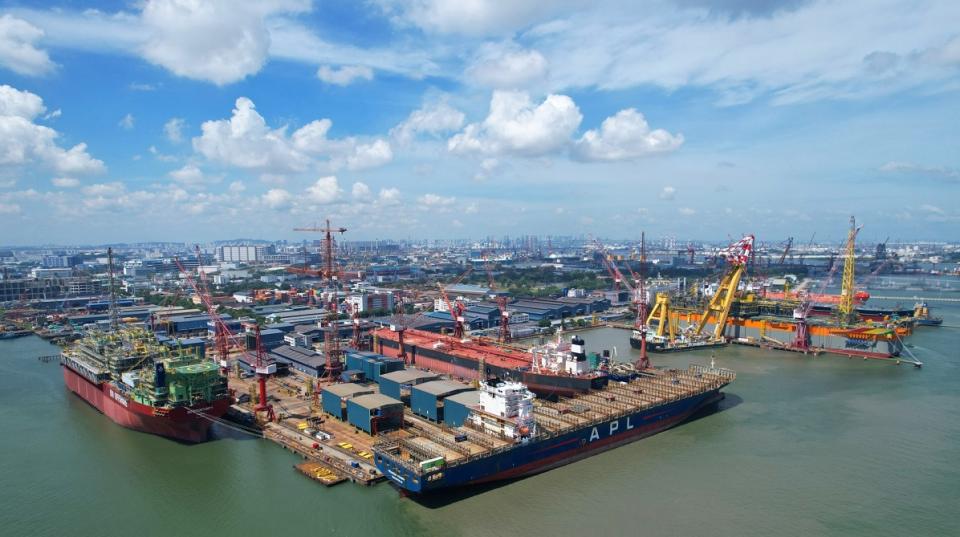A lack of sufficient evidence was the reason behind 'stern warnings' only for former Keppel O&M employees: Indranee

CPIB had issued “stern warnings” to the six individuals, who were formerly senior management staff of Keppel O&M on Jan 12.
A “lack of sufficient evidence” to prove the offences of six former Keppel Offshore & Marine (Keppel O&M) employees beyond reasonable doubt was the reason behind the stern warnings issued, says Minister in the Prime Minister’s Office, Indranee Rajah.
The minister was addressing the questions raised with regard to the government’s decision to issue stern warnings to the six individuals who remain unnamed.
In her speech, Indranee referred to the Corrupt Practices Investigation Bureau’s (CPIB) release, which stated that there was a lack of sufficient evidence which would establish criminal charges beyond reasonable doubt against any specific individual.
CPIB had issued “stern warnings” to the six individuals, who were formerly senior management staff of Keppel O&M on Jan 12. The individuals had allegedly conspired with each other to give bribes totalling US$55 million ($72.9 million) to foreign consultants. The monies were then used by the consultants to pay bribes to officials from the Brazilian state-owned corporation, Petróleo Brasileiro S.A. (Petrobras).
While the agency conducted an “in-depth investigation” in Singapore within its legal powers, there was difficulty in securing several “potentially key witnesses”, who were not in the country. CPIB cannot secure their cooperation or agreement to testify in Singapore, explains Indranee.
The contents from CPIB’s fact-finding trips to Brazil in May and August 2019, as well as the mutual legal assistance requests sent to Brazil and “another relevant foreign authority” did not yield evidence that could be used to secure conviction before Singapore’s courts, she adds.
Furthermore, one of the individuals involved denied knowing that the commissions paid to the agent in Brazil were bribes. He did not implicate himself or others in conspiring to pay bribes.
“Even if the public prosecutor (PP) applies to a Singapore court to admit the plea agreement, the agreement didn’t identify specific individuals and was made in the context of a plea bargain and will be given limited weight without further supporting evidence and in the face of conflicting oral testimony,” says Indranee.
“CPIB has conducted as thorough an investigation as it could with the information and powers it possessed, she adds. "Given the cross border of this case and the absence of key witnesses, CPIB’s investigations could not overcome evidential difficulties for the purposes of prosecution in Singapore’s courts. As such, stern warnings were issued."
However, if “new and compelling” facts come to light, the PP may reevaluate its decision.
No changes to Singapore’s zero-tolerance policy on corruption
Further to her speech, Indranee clarified that Singapore’s zero-tolerance policy on corruption remains unchanged and that the CPIB and Attorney-General's Chambers (AGC) were observing the basic rules for a fair and just criminal justice system.
“What can be inferred from this is while Singapore has zero tolerance [on corruption], it also strongly adheres to rule of law,” she says.
On CPIB’s powers to investigate foreign bribery cases, the minister said that its powers under the Prevention of Corruption Act 1960 (PCA) allow it to investigate offences committed by Singaporeans abroad but investigations have to be conducted in Singapore.
She adds that it is not possible for CPIB to conduct investigations in foreign jurisdictions as it will “run afoul of territorial sovereignty.”
“Singaporean companies operating overseas do so in myriad environments where all kinds of business practices prevail. We can’t police all of them. But we can and should do is to insulate our companies and systems against corruption. Our companies must find a way to do business cleanly wherever,” she continues.
As at 3.58pm, shares in Keppel Corp are trading 8 cents lower or 1.10% down at $7.18.
See Also:
Click here to stay updated with the Latest Business & Investment News in Singapore
UOB Kay Hian expects a 'strong year ahead' for 'overweight' offshore & marine sector
DPM Heng says Keppel O&M bribery case could be reopened with new evidence
Get in-depth insights from our expert contributors, and dive into financial and economic trends

 Yahoo Finance
Yahoo Finance 